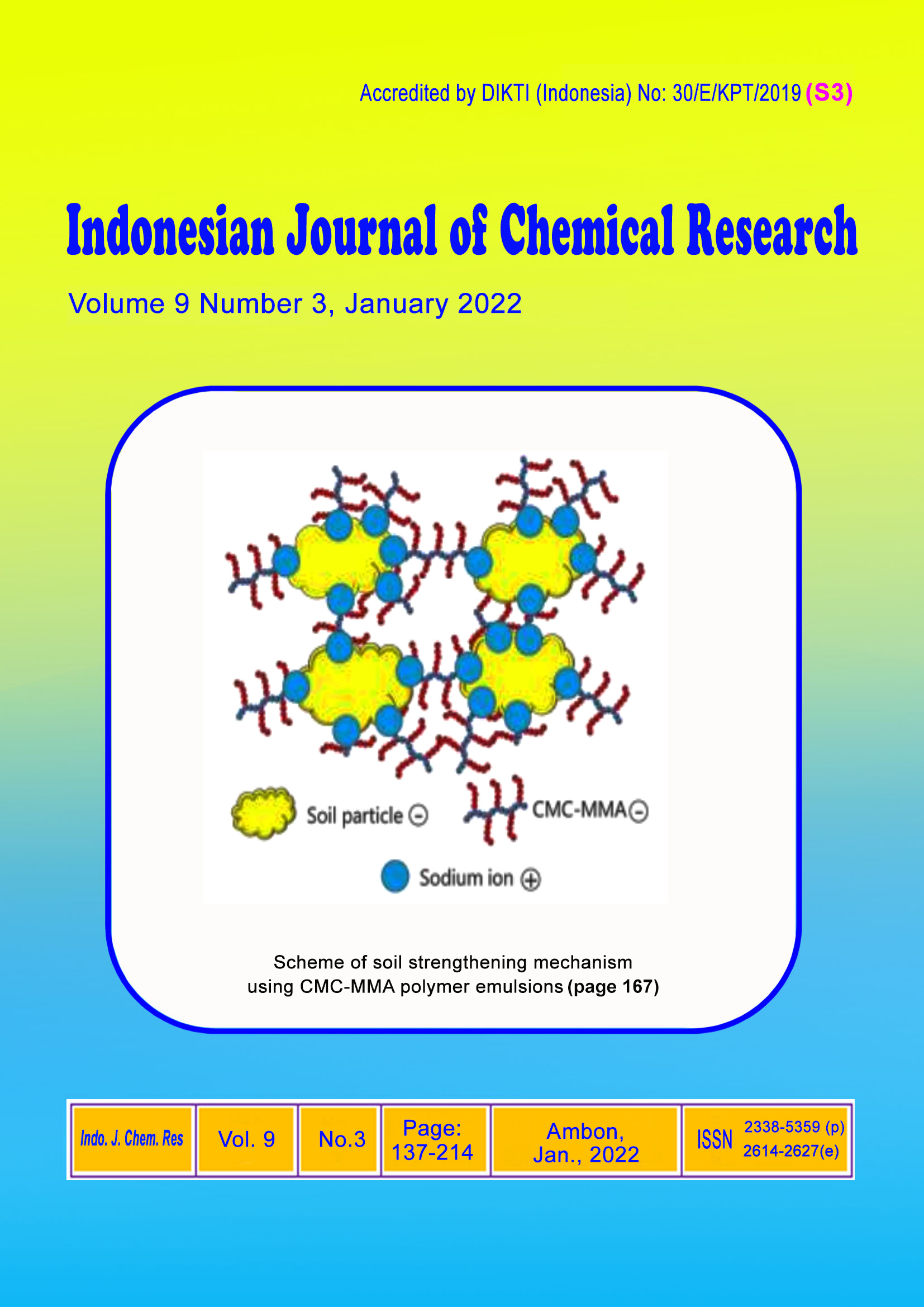Sterol Constituents of Sea Fan (Gorgonia mariae) as Potential Candidates of MPro Protein SARS-CoV-2 Inhibitor: in silico Study
Abstract
Ethnobotanically, sea fan was a group of gorgonian coral that have used the Maluku people as medicinal ingredients with secondary metabolites containing sterols, terpenoids, and alkaloids that have anti-inflammatory, anti-viral, anti-cancer, analgesic, gastroprotective, anti-bacterial, anti-cancer, and anti-fouling agents. However, the effectiveness of sterols as anti-viral SARS-CoV-2 has not been reported, so research was needed. The initial stage of targeting (SwissTargetPrediction), binding affinity (Autodock Tools 4.2), and amino acid interactions (Discovery Studio 2016 Client®). The route of administration, pharmacokinetic properties, and acute oral toxicity (LD50) were predicted by Lipinski's rule of five, pre-ADMET, and ProTox-II. The results of target class obtained probability of 10.6% (4,24-dimethyl cholesta-7,22-dien-3ß-ol and 4,24-dimethyl-22-dehydro-cholestanol) and 11, 8% (dinosterol). Binding affinity (ΔG, kcal/mol and Ki, nM) potentially 4,24-dimethyl cholesta-7,22-dien-3ß-ol (-9.90; 55.13) > dinosterol (-9.77; 68.66) > 4,24-dimethyl-22-dehydro-cholestanol (-9.48; 113.33), respectively with the crucial amino acid, Asp187. The test compound has a log P value > 5, so solubility must be considered. Pre-ADMET showed an excellent disposition as a drug and was not mutagenic and carcinogenic. However, the distribution of plasma proteins and the dose of LD50 need to be considered. Thus, sea fan sterols have potential as MPro protein inhibitors.
Downloads
Copyright (c) 2022 Faruk Jayanto Kelutur

This work is licensed under a Creative Commons Attribution-NonCommercial-NoDerivatives 4.0 International License.
Authors who publish with this journal agree to the following terms:
- Copyright on any article is retained by the author(s).
- The author grants the journal, the right of first publication with the work simultaneously licensed under a Creative Commons Attribution License that allows others to share the work with an acknowledgment of the work’s authorship and initial publication in this journal.
- Authors are able to enter into separate, additional contractual arrangements for the non-exclusive distribution of the journal’s published version of the work (e.g., post it to an institutional repository or publish it in a book), with an acknowledgment of its initial publication in this journal.
- Authors are permitted and encouraged to post their work online (e.g., in institutional repositories or on their website) prior to and during the submission process, as it can lead to productive exchanges, as well as earlier and greater citation of published work.
- The article and any associated published material is distributed under the Creative Commons Attribution-NonCommercial-NoDerivatives 4.0 International License.






_copy1.png)










